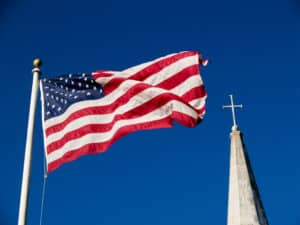
Jenan Taylor
4 April 2023
When the Reverend David Boyd and his wife Prue packed up and left their house in the Democratic Republic of Congo for the last time in 2022, it was with great reluctance.
The former Church Missionary Society missionaries had spent a total of 18 years there and say they will never forget the people or the place.
They want Australians, and Anglicans in particular, to not forget Congo either.
A country that has borne several conflicts, the DRC is rich in natural resources including rainforests, and minerals such as cobalt and copper. Yet, it is among the five poorest nations in the world.
The Boyds first arrived in DRC, known then as Zaire, in 1986 and took up their roles in Bukavu, a city edging a great lake on the Congolese-Rwandan border.
Hoping to be agents for change, Mr Boyd taught at churches, Bible schools and in the community, and attended a variety of other tasks, while Mrs Boyd went on to set up the country’s first two public audiology clinics.
They forged close connections with parishioners including women’s groups, families and students, and other community members, and came to know the customs and nuances of local life.
Fear was a constant for many Congolese, fear of being rejected by God because of sin, of poisoning, and of witchcraft, Mr Boyd said.
Often, he and community members would discuss how, as Christians, they could deal with those matters.
Read more: Vulnerability a ‘really important starting point’ for those engaging in mission work
Reflecting on the country’s troubles Mr Boyd said bad policy decisions, the actions of neighbouring states, unrest, and the relentless, unethical extraction of mineral resources drove much of Congo’s instability, including widespread poverty and displacement of people.
Human Rights Watch reported in 2022 on the strong link between the area’s conflict and the deep international interest in Congo’s resources and land.
Mr Boyd wants people in developed countries to be more aware of the practices of international corporations involved in mining.
Stakeholders in multinational companies benefitted directly from the profits, as did some of the country’s elites, while economic utility rarely if ever made its way to the general population, he said.
Mr Boyd also wanted Australians to be aware of how much they, and their first world counterparts indirectly reaped from many of the extraction practices.
“A lot of cobalt comes from Congo, and of course diamonds have been mined there at great human cost. Much of what is mined goes into the manufacture of mobile phones and batteries that people use,” he said.
Read more: Why would someone go as a missionary to … Australia?
Further research has found that most of the world’s cobalt supply came from the DRC, and that it was linked to child slavery, displacement of people, severe health impacts, and multiple fatalities.
The effects of the Ukraine war in the last year including a shortage of fuel, and a new evolving crisis involving the Congolese army and a rebel movement M23, has added to the situation.
Increased numbers of displaced people arriving in Bukavu and other populated areas has also escalated tensions, and food prices have become astronomical, Mr Boyd said.
Expatriates including missionaries of all denominations have faced multiple difficulties. People have been kidnapped, travel out of town has been difficult, and everyone has been advised to act with extra caution.
Some missionaries are on standby to leave with a moment’s notice, which makes it hard to think in terms of continuity.
“If people know they might have to leave quickly, their work just waits, and so the once considerable size of the missionary force has also fallen,” Mr Boyd said.
Even so, the potential for continued Christian Australian involvement was huge.
Read more: Missionaries need to understand diversity and multiculturalism to be effective, expert says
Many of the NGOs and the UN contingents in Congo have become more aware of having good relationships with Christian organisations and churches, particularly pastors, if they want to bring about change in communities, he said.
Local and international Christian organisations as well as churches have also played a huge role in trying to help refugees and displaced people.
The ABC reported last year that school programs run by Christian organisations such as the Good Shepherd also provide feeding programs which go some way towards helping to alleviate the crushing need among families.
Although Congo’s troubles, made it easy in some ways for many Australians to turn their attention elsewhere, Mr Boyd said they should remember the importance of focusing their efforts there.
He pointed to the great satisfaction and confident relationships he and his wife had reaped from working with the church, and in the wider community, and being where they thought they could help out.
The presence Australian Anglicans established in the region since the 1980s, and the support they received from people continued to be strong, Mr Boyd said.
“More than ever, they should not give up on Congo.”
For more faith news, follow The Melbourne Anglican on Facebook, Twitter, or subscribe to our weekly emails.







